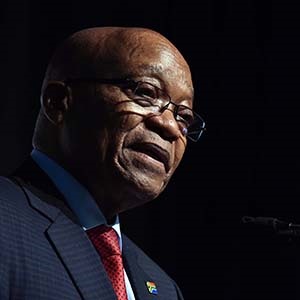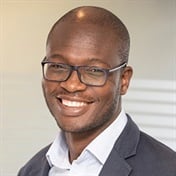
Had it been a military war, the near-defeat of South Africa would have been clear to all its citizens and throughout the world. The casualties would have left survivors and observers shocked.
We would have dominated global news headlines. Scars on the landscape and the trauma on the collective psyche of the nation would have characterised the post-war era. And our lacklustre escape from the jaws of defeat would have dented national confidence.
However, those from within the Republic who would have been entrusted with its defence, but had used their access to its artillery and intelligence to help the enemy in exchange for mere short-term pleasures, would have been charged with treason. They would be languishing in jail.
Statues would be erected for those who aided our recovery in the war efforts to encourage future generations to fight for their country. With the Republic back safely in the hands of its citizens who are alert to future threats, there would be a great effort to fortify all its defence mechanisms.
Stringent criteria for citizens to occupy positions that give them access to sensitive defence and intelligence codes would be crafted. This would mitigate the recurrence of the shameful past where the Republic was almost completely overwhelmed in part due to the inside job of scoundrels.
But South Africa's constitutional democratic state has not been at war post-1994. It had not had a clear enemy or threat from outside. The only serious national security threat was the Boeremag terrorist organisation that had a plan to drive all black people to Zimbabwe via the N1 highway. They were thwarted and slapped with treason charges. They are in prison.
Yet, South Africa's state was captured in a sophisticated scheme not as obvious as an outright war or as the daring Boeremag would have made it abundantly clear to all. The consequences of state capture were not immediately clear. In the long run, however, the state would have been completely crippled.
Those responsible should, therefore, face no less a charge than treason. But the fact that they haven't and it's not clear whether they eventually will, means the state was and is overwhelmed. It hasn't cleansed itself of the remnants of capture. It hasn't been able to rise and fight back.
The reason is that our state is not a living organism. Its abilities or weaknesses are a function largely of the skill and consciousness of those who operate it.
The state capture commission of inquiry that is underway was triggered by individuals with a consciousness strong enough to ward off both the state's internal enemies (Jacob Zuma and company) and external enemies (Guptas and company) who collaborated to subvert it. It's the whistle blowers, investigative journalists and other patriotic citizens who ensured that the capturers were neutralised.
No one among the masterminds of capture has come forward to admit to their nefarious activities. They somehow still believe they can explain away their thuggery. Having occupied the nervous system of the country's security operating system (Zuma was commander-in-chief of the armed forces and held the executive authority of the state), does he perhaps know something about the extent to which the state's ability to rise and hit back has been diminished completely?
An organ of state that was nearly completely destroyed, the Hawks (whose previous incarnation, the Scorpions, had been killed and now we know why), was in Parliament the other day explaining to MPs, including those who supported state capture, the difficulty of charging state capture suspects.
It was shocking to hear how the Hawks, the supposed premier fighter of organised crime, admit to lack of capacity to bring state capture elements to book. They are so overwhelmed they have outsourced a lot of forensic work to private companies, a sign that the South African state has no internal mechanism to protect itself against threats.
State security was reduced to a factional entity doing the bidding of certain politicians. While the state was being captured, those who were supposed to defend it, the state security officials, looked on and seemingly did nothing. Had it been a military war situation, one would be left with no option but to declare that we had a useless or captured army in combat.
After a near-defeat, those who were supposed to defend the state but fought on the side of the enemy would not come closer to any state building. But we know that in the context of state capture, those complicit still have their tentacles across the state.
If those whose duty it was to protect the state, have themselves facilitated state capture and they remain in the state post the near-defeat, this raises the question: whose duty is it to protect the state in the final analysis? The answer is simple: ordinary people with strong conscience.
South Africans must disabuse themselves of the idea that leaders are saviours simply because they appear on TV regularly. We need a strong and healthy level of distrust of political leaders.
State institutions don't belong to leaders who preside over them. At the heart of state capture was the idea that those who were entrusted with the privilege to occupy sensitive positions in the state had a right to convert the privilege to private entitlement.
Except for the enraged citizens who marched in protest around the country when it became clear the executive authority of the Republic had been outsourced, the majority of South Africans seemed to believe that those who occupy positions of responsibility were entitled to do as they wished. This mentality has to change. We must not wait for an actual military war to defend our country.
As the state capture commission proceeds, we should understand that its mere existence is a compromise in the absence of the state's ability to fight capturers through outright treason charges and criminal trials.
The commission, the first of its kind where a captured president was forced to set it up, with special public protector powers, is a consequence of a creative legal solution of a determined Public Protector Thuli Madonsela. I'm not sure whether we have fully appreciated her patriotic duty to the Republic.
Madonsela understood that her duty goes beyond the narrow personal interests of those who appointed her. She served the Republic with distinction.
We should also understand that Justice Raymond Zondo, the chair of the state capture commission, and his staff will not rescue the state from capture. It is the duty of ordinary citizens to protect the state.
Whatever comes out of the commission – if we can have it all revealed officially in addition to what investigative journalists and whistle blowers have uncovered – all of us individually should be asking ourselves the questions: "What should I have done and what will I do for my country to prevent capture?"
- Mkhabela is a political analyst with the Department of Political Sciences at the University of South Africa.
Disclaimer: News24 encourages freedom of speech and the expression of diverse views. The views of columnists published on News24 are therefore their own and do not necessarily represent the views of News24.




 Publications
Publications
 Partners
Partners























